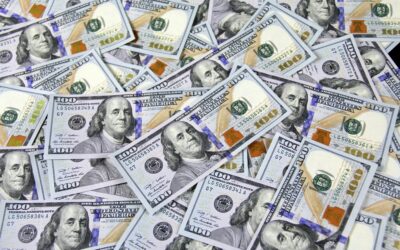Know Your Client with Jai Baker
When you truly know your client, you understand a lot more than just their numbers. Jai Baker talks about developing relationships that get results!
Listen to us On
About the Episode
We focused on knowing your clients and customer beyond just numbers and superficial information, how to identify and understand patterns in our lives, why everything is interrelated and how to benefit from that understanding, and how to make better financial decisions, with Tim “Jai” Baker, Advisor, and author.
Listen to hear a difference-making tip on why a team is essential to get the results you’re looking for!
You can learn more about Jai at LuminousWealth.com, and LinkedIn.
Get your copy of The Awakened Investor here:
Did you get anything out of this episode? Do us a solid and leave a review:
https://ratethispodcast.com/alignedmoneyshow
Learn more and engage at MoneyAlignmentAcademy.com, Twitter, LinkedIn, Instagram, YouTube and Facebook.
Buy George G a coffee (he loves coffee)
https://www.buymeacoffee.com/lifeblood
Have George G speak
https://moneyalignmentacademy.com/speaking/
Financial literacy and wellness for individuals, families, and companies
https://moneyalignmentacademy.com/
Find George G’s books here
The Aligned Money Show is the podcast for Money Alignment Academy, copyright 2024.

George Grombacher
Host

Jai Baker
Guest
Episode Transcript
eorge grombacher 0:01
Jai, to get us started, give me two truths and a lie please. Okay,
Jai Baker 0:06
here we go. So in the summer of 1968 I played on a junior ice hockey team in St Petersburg, Florida. Couple, couple of weeks ago, I attended a Doctor Joe Dispenza meditation retreat with 1900 other people, and during that it was actually about six days, I got in 42 hours of meditation during that time, wow. And the month that I was born, my parents put $1,000 into a small cap value stock fund, and it’s we’ve never touched it, and it’s worth over $13 million today.
george grombacher 0:58
That is amazing. These are exceptional. 1000 bucks goes into a small cap value fund the month of your birth, and several years later it’s worth over 13 million bucks. You played ice hockey in St Pete in 1968 and during six day Dr Joe Dispenza retreat, you meditated for 42 hours. Wow. Well, Jai, I don’t know if you ever played hockey. I’m sure that you had wonderful parents. I know that you’re a thoughtful guy, so oh my goodness, I’m going to say that there’s not $13 million just sitting in account from your parents.
Jai Baker 1:40
You are correct, but, but the truth is about that is the small cap. The US small cap value fund would have grown to over $13 million today. If there were $1,000 put in it, wow. Yeah, the S, p5, 100 would be around a million dollars today.
george grombacher 2:03
Nice, all right. So, so did you take the money out on your like 13 birthday and do something done with it? Or
Jai Baker 2:10
they never put it in it,
george grombacher 2:19
just it, just it, just never happened so well, that is, that is, that is excellent. What so? So did you grow up playing hockey, or you just heard hockey was in town and you went to skate?
Jai Baker 2:30
Now, I grew up in southeastern Virginia, and every summer my family would take their vacation St Petersburg, Florida, where I had a great aunt and uncle that lived at Pasadena Country Club, and three summers in a row, my parents just left me there because to play golf, but twice a week during the week, they take me to the Bayfront Center in St Pete and I played on a junior ice hockey team. Super cool. Play golf every day, and hockey twice, twice a week. Sounds like a pretty good program. It was pretty neat. Yeah,
george grombacher 3:04
all right, and then 42 hours of meditation time. How is that
Jai Baker 3:12
not a lot of sleep? Time started one morning at 4am and we had a five straight hour meditation. But it’s, it’s amazing work that Dr Joe Dispenza does. He’s healing the world and he’s making he’s raising consciousness everywhere he goes. He He does this about twice a month, and he draws anywhere from 2000 to 4000 people at his events. And it’s a great body of work that he’s doing. It
george grombacher 3:46
is extraordinary. I didn’t realize he was doing two a month. That is exciting. So you say it’s definitely worth the investment,
Jai Baker 3:55
absolutely, yeah, yeah, no doubt about it. And you know, I’ve been meditating since 1998 I first learned my technique through Dr Deepak Chopra. I learned a primordial sound meditation technique, and that’s been my daily practice ever since then. Dr Joe has a different technique, but you have the same results. And I think to the Western mind and Western mentality, he probably connects a lot better than than what Deepak can do for people here. It’s, you know, a lot of times it’s tough on the western you’re listening to an Indian dialect, but, but both these guys are just amazing human beings. Yeah, they’re very impactful in my life. Yeah, nice. Alright, since 1998
george grombacher 4:50
been meditating every day. Awesome. Well, Jai, I’m glad to, glad to have you on what is, what is top of mind for you right now? You.
Jai Baker 5:00
Oh, wow. So I had three three and a half years ago, I had sold a business that I created back in 1997 I developed it into what’s called a multi family office. We had two CPAs on staff, an attorney on staff, three Wealth Advisors. And two months before I sold it, I brought in an Ayurvedic practitioner for Mind, Body Spirit work. So we acted as the fiduciaries for all the families that we worked with. I had about 155 families always working with almost 400 million in assets that I was managing about 80% of those people were either doctors, execs at hospitals, or hospitals themselves. But I took a three and a half year sabbatical, and the first for the first year, I consulted with them, but they didn’t need me. The next year, I told people I was writing a book, but I wasn’t. I had already written the meat of a book, and so by year three, that story got old to me. So I finished the book, and it came out last Thanksgiving, called the awakened investor. It’s on Amazon now. Along the way, it became clear to me that I wasn’t very It wasn’t very healthy for me to to not do anything. And so I’ve recreated what I was finishing, what I had left off, and through a virtual, mutual, multifamily office. And so I’ve developed my team and and we’ve already brought in our first client, but we’re about two weeks away from our website being up and ready and and so I’m excited to really complete the consciousness piece of what I had had ended with three and a half years ago. So my team now consists of a CPA, an attorney, a real estate advisor, a body nutrition coach, a consciousness mindfulness coach and a spiritual advisor. And so what I recognized during my career is that money is not just the elephant in the room for most Americans, it’s the room itself. Most people don’t have a good relationship with money and United States, and so one way to approach rightsizing This is to provide a holistic service to people where money or finance is just 1/8 of all the major aspects of how they view their life. And so what I’ve done is I’ve combined my almost four decades of evidence wealth evidence based wealth management with a team, and I’ve complimented that with the blue zone study and research of those societies that have the longest of lives and the highest quality of lives in that journey. And so that’s what my other teammates are there to do, is to to round out this experience we’re having because you can’t manage money in a silo, you can’t manage your workouts in a silo, you’re going to become out of balance. Everything is interrelated in our lives, and so we have to be connected in all of that. And so that’s what a team approach is going to do with our clients. I actually have a theory that if people will master those seven of the eight aspects, the non financial aspects, that the financial aspect will just fall into place. They won’t even think about it.
george grombacher 8:59
What do you say to people who would say, why don’t you just stay in your lane?
Jai Baker 9:06
Which lane Are you referring to? Wealth Management lane?
george grombacher 9:11
Yeah, just, just anybody would say it to I would say that they’re stupid, but I don’t know what you would say. Well,
Jai Baker 9:15
well, you know, I look at people as a human being, not just as a money quotient. And so during my career, I was working with some families for more than 30 years. And so I met them mid or late career. I, you know, work with them through the retirement phase and well into retirement. And I always saw it, just as long as we met or exceeded their goals that we had embarked on, that these people would feel contented, they would be happy with their lives. And that wasn’t necessarily the case. They were still stressing out when things were going up. They were stressing out when things were going down. My most wealthiest class. Client that I had was my most stressed out client. And so through the years, in 1997 I started out as a multi generational financial planning firm, it was just me and an assistant. And so my client meetings through all those years was kind of like my laboratory, the feedback loop that I was getting from clients to to see what else I needed to provide them to make this wealth journey a better journey for them. And so that’s why, over the years, I was bringing in a CPA, and then I brought in another CPA, a wealth an attorney, other Wealth Advisors. And so I completed the the wealth piece, I felt like as best we can, but it bothered me in a great way, that that people were still unsettled in their body. What was interesting the last five years or so before I sold my firm, I had a radiologist call me up one day and he and he says to me, you know, I pray, I don’t meditate. I said, John, that’s great. I said, keep at it, and I could be and I thought that was kind of odd, because I never evangelized about meditating. The only thing that anybody ever knew about was I would sign my quarterly letters, namaste. So for many people, I was their Budd brother. Some people, I was their Hindu brother. Other people, I was just their brother and and so two years passes, and I get a call from the same gentleman, and he says, You know, I’ve been retired now for a year. I said, I know, John, we’ve been sending you monthly checks now. And he said, but I’ve had time to think about life in a different way. You know, when I was working, I was so busy, I wasn’t contemplating all the aspects of my life, he says, but what I what I’ve come to feel. I need to do now is to have you, to get you to teach me to meditate. That’s it. I said, That’s awesome. He said, and I also know that, you know that we can heal our bodies. And he said, I’m getting ready to have knee surgery. He says, I want you to help me with that too. And I said, Well, the first thing you have to do is say, stop saying that you’re going to have this knee surgery in the same week, I had a 74 year old child psychologist call me up. I met with her and her husband, who was also a psychologist. They worked together in the same office for over 30 years. I met with them every three months in their offices on a Friday for lunch, and we would have a two hour or so meeting. And she calls me up the same week the radiologist did, and she said, you know, Dennis has now been, has now passed for five years, and I have felt really connected with him all this time, even though he’s he’s passed, she says, but I’m starting to lose that feeling now, and I and I recognize the connection that you and he had in our meetings through all those years, you were just spiritually aligned with each other. And she said, and I feel like if I learned to meditate, I could reconnect with Dennis. And so those were two powerful events for me and my work. And so I wanted to be able to to be able to bring in a team that could, that could do the right job for people who were ready for that. I don’t evangelize, but I think if we, we show people by our who we are, that, and if they like that, that they’re going to want to know what it is that you’re doing. And so I’m there to just provide a little nudge and just see if it, if it gets absorbed and people are attracted to it. You know, I have this roadmap with this team, where we’re we’re going to provide tools for higher awareness to wake people up of what they’re doing in their lives. So I have this mindfulness coach, and I have this spiritual advisor. People don’t have to embrace and embark and dive deep into those but I want people to see that the roadmap that they have in front of front of them, and what is available to them to have the very best life that that we’re here to have, and without that mindfulness, that emotional intelligence, without that connection to our non physical self. Call it God consciousness, Jesus, Buddha, Muhammad, whatever you want to call it, we’re not living a full life yet when we’re when we’re operating from just these five. Is this physical bag of bones. We’re feeling separate. And so we’re, we’re operating in that world of Lack and Limitations. And so it’s, it’s, you know, it’s a difficult world. It’s a very challenging world to live like that when you’re tapped into your non physical self, your your conscious self, now you’re feeling connected with everyone so living in just the material world, not connected, you see that last slice of pie on on the pan, and you’re just going to run over there and grab it, because we’re in this physical world. We got to get what, what we can get, and the person in consciousness says, we’ll just make another pie. Go ahead and take it.
george grombacher 15:50
I love it. I love everything about what you just said, that you don’t evangelize just through who you are and how you operate in the world. You become evidence to others who observe you, and they become curious about it. You mentioned a quarterly letter in in your letter, do you talk about how these, these practices impact you, and then you make different opportunities available to people. How do you how do you introduce these things to to your clients?
Jai Baker 16:20
You know, I did notice in the last 10 years of my writings that I wouldn’t necessarily write just about my own experiences, but I would bring up the topic of consciousness in a non invasive way, but I was introducing people to that I um, it was, what was, was what really got me going one year was I was having a luncheon with the executives of a large radiology clinic I was working with. I was managing their retirement plan. They had 68 positions. They were read only practice. But this particular day, I wanted to just spend time with the top executive staff. So 14 of them, we had a luncheon, and they were making 60,000 to $260,000 of income. Each one of them, they were one half. They were all they all had partners. They were one half of the family household. So that’s a pretty good economic swap of America. And during the lunch, I heard somebody say something negative about money, and so I call timeout on lunch. I said, Alright, we’re going to go through a little meditation process here. And I had them all close their eyes. I had them take several deep breaths. And I said, I’m going to say a word to you, and when I say it, I want you to sensate in your body what you’re feeling and how you’re feeling about it. I want you to sensate if you’re having a negative, a neutral or a positive feeling about what I’m about to say to you. So they all settled down, took some breaths, and I said the word money. And then we just sat with it for about a minute, and I said, before you open your eyes, I want everyone here to raise their hand that had a negative sensation about money, and then neutral and then positive. So George, out of 14 people making the kind of incomes? How many people out of 14 you think had a negative sensation? 12, all 14. So, you know, it’s, it’s so that says they have a bad relationship with money. It’s like having a partner. If you’re not thinking well of your partner, you’re just an accident, looking for a place to happen. And that’s where America is with money. You know, we represent 4.2% of the global population, and we’ve created 62% of the world’s business valuation United States. And yet, PBS did this documentary Americans the retirement dilemma. We have a poor relationship with money. So what is the reasons for that? Well, I think there’s several. I mean, one I think, is the is the landscape that consumers have to deal with when getting their money managed. It’s a muddied landscape. It’s fraught with conflicts of interest, lack of integrity, lack of morality. Wall Street knows the consumer’s mind better than the consumer does. It knows how to manipulate the mind, because we’re still dealing with that reptilian mind, the amygdala, that’s always looking out for danger. So Wall Street profits when they’re creating products and services and languaging around, getting you to move your money. Of moving money as profits in the pockets of Wall Street and Bank Street and insurance Street. They’re okay if you make money, but they’re going to make theirs first. But I think it goes deeper than that, and I think the deeper aspect of it is the fact that we’re disconnected from consciousness, and we live in this material world, this social media world, Facebook, Tiktok, we’re always looking out to see what the other people are doing, and we’re saying to ourselves, Well, that’s what we want. We’ve never spent time with ourselves. In fact, most people, I say, don’t know themselves. So the first order of business that I take on when I’m being introduced to someone who we potentially could have a relationship with is I provide a human archetype assessment quiz to know thyself, as you know in the financial industry, the institutions have always said, as an advisor, you have to know your client, give them this, ask them these 10 questions, and then, boom, you know the client. Well, that’s kind of silly, because the client didn’t know themselves. So I start with a very deep study, and it’s based on Carl Young’s personas and a brilliant man Hugh Massey at DNA behavior that’s out of Atlanta. He was Australian by birth. Developed this software to to go through these studies. And so the what it does is it puts you in one of 10 archetype personas. They’re 97% accurate with this placement. And then it drills down to your unique your unique thumbprint. And what it will do is it will show you those aspects of you, your attributes and qualities that’s serving you, but then it will show you those biases that aren’t serving you. And what typically has happened in the past, when I’ve done this and a couple comes into my conference room, someone will say, Well, you know, that study seemed like a lot of like me, but that one thing over there that’s just not me at all. And quite typically, the partner across the table will look at them and say, That’s exactly who you are, because, and that’s what makes it a bias. I mean, fire doesn’t know itself to be hot water doesn’t know itself to be wet. So when we are that pattern of behavior, we just don’t recognize it. And so I follow that up with a genogram, which is because I understand that all of life is a fractal, infinite, repeating patterns of information. You see it in the cosmos. You see it out in nature, and you see it in the repeating patterns of the behavior in humans. And so when I get a family’s lineage on paper, the parents, the grandparents, siblings, and I do it with both couples and then the children, and then I’m asking questions about major aspects of those people lives. And then I follow that up with, what are their money scripts that have been handed down? And what money scripts are you handing down to your kids? When you get all of that on one paper, you start to see these patterns in these families, and a person will, many times, just wake up and go, Oh my god. This is why I am. This is why I’m making the choices I’m making. Because, you know, at some level, we’ve all been programmed to be who we are. Now, we were programmed through age seven. Whether you believe in reincarnation or not, doesn’t matter. We know that we came into this world with certain DNA lineage. And then we’re in mom’s womb for nine months, taking on her chemistry and her her emotions. And then for the next seven years, our minds are in this alpha theta state, and that state of mind is a sponge of your environment. You can’t say no to it, and so you become the garbage bed of everybody’s desires in that period of time. And then at age seven, you form a beta mine, which is, and we have a low, mid, high beta. You and I are operating in a beta conversation right now. And when you’re in that mindset, you can say, No, it’s that’s BS, that’s not me. But until then, we’re programmed to be who we are, and if we never change, if we never try to change ourselves or rewire our programming, we’re going to live a life of faith. If we can wake up to say to ourselves and sensei that there’s something about. It’s more authentic than the way that we’ve been groomed and programmed. And we take action. We start through different processes, get reconnected to our higher self. Now we can start making different choices, that in order to have a different reality, you have to become a different personality. And so that’s what that reprogram is going to do. And by coming that different personality, that authentic self of who you really are, now, you’re living a life of destiny. Now, that’s a life of free will.
george grombacher 25:34
And that’s a beautiful thing, an amazing thing. Know your customer, you need to know a little bit more. Need to know what kind of accounts they’ve worked with in the past, and the value of their investable assets and stuff like that job,
Jai Baker 25:49
of course. But once you uncover, once you get this person to their authentic state, they’re open, and now you now you start asking them to dream in an authentic way, not who their co workers, you know, not what they’re going to do with their lives, but what you want to do with your own life for maybe for the very first time. So what I get them to do is, I say, dream big. Give me the chariots and the castles in the sky type of goals that you have, and then I say, if that, if we can’t make this work out through our financial planning work and the resources you have, give me scenarios of what an acceptable world would be. Now I’m not talking about being a homeless person. I’m talking about a world that’s very comfortable, but it’s not the castles and chariots in the sky. And I’d have to say that through the years, there were probably five people, five families, that could exceed those chariots in the sky, and there were about five people who couldn’t get to their acceptable world. But we had time to course correct most people, their world fits somewhere in between those scenarios. And so there’s, there’s five major aspects of of financial planning that we do control. We can control when we retire, we can control how much money we’re going to save along the way. We can control how much money we want to spend when we get there and what we want to spend it on. We can control how much money we want to leave as a legacy. Now, we may not like which way we’re controlling those, but we control those. The one thing that we don’t control, though, is the rate of return you’re going to get on your portfolio, but we can stress test that, and so that’s the basis, that’s the essence, that’s the core of the planning work that we do. But it has, and it’s not a one and done thing. You know, there’s probably less than a third of the people that actually have a financial plan done one time. I contend they don’t really have it done correctly, and then they never follow it up. And for me, I’m I’m tracking it. Literally, we’re tracking it every day, but we’ll talk about it when the client wants to sit down and talk about it, but it’s being tracked every day. Everything is in real time. This is this is our benchmarking, this is our guideposts. This is our roadmap for the like. And it needs to be flexible, and it needs to have the eyes of multidisciplinary professionals looking at it, to give people the best strategies and the best chances to get the most out of their resources. And so I mandate that I that our clients work with our CPA, they work with our attorney, that they work with our real estate advisor, they work with our investment advisors, portfolio managers and insurance advisors, and there’s no commissions that’s being charged along the way, so we removed the conflicts of interest. We act as fiduciaries for the interests of the families that we’re we’ve been honored to and blessed to be able to work with.
george grombacher 29:12
Well, everything you’re saying is music to my ears, and I think it’s I think it’s awesome, so I appreciate the work that you’re doing.
Jai Baker 29:21
Well, what I’d like to do is to change that cocktail party conversation, because, as you know, I’ve gone to these things too. People are at a cocktail party and they’ll say to somebody, well, where does your advisors hot stock tip that’s that’s not familiar to you. Is it Sure? What I want to change that to is, who do you? Who is your your holistic wealth management team?
Who’s the team that’s where that’s the difference maker. You. Now you’re now you’re not managing by chance and speculation,
yeah, and it gives people a lot of trust in knowing that they have a team on their side that’s coordinated.
george grombacher 30:16
Yeah, it strikes me that you are playing a version of the ultimate long game. There’s no short term thinking going on with what you’ve been describing. It’s, it’s been invitation, it’s, it’s, it’s helping people to to get to know themselves. Because, to your point, so a few of us actually do. And as somebody famous said once, the unexamined life is not worth living. So I appreciate that you’re helping people to come to that place, and you just gave us a good tip. You just gave us a good tip, but we’re gonna ask you for your difference making tip right now. Jai, what do you have for us?
Jai Baker 30:54
Oh, wow. You know, truly, it’s finding that team, uh, most people run around with maybe two or three different investment people that they do work with, and maybe they only they have a portfolio they’re self managing, and then they separately go get four or five insurance policies through the years. Who’s who has never talked into the estate planning attorney and the CPA that they then run off to has never talked to the investment guy, except at tax time, when there’s missing 1099, information. So few people have done the financial plan. Certainly nobody’s talked to the spiritual advisor. And so you run it, you take the maximum time running around, getting all these services for you, paying a maximum fees for them. And everybody wants to be either the man or woman in charge of the family. So, you know, two people look smart at one time, two people don’t those. Two people, two people get fired. There’s a lot of discord between what’s being recommended to the family. They’re not trusting the the strategies that they’re putting it into place. And so they become dismantled at at the first sign of a road bump in the road. And so that’s the critical part of getting this team and changing the way that we’re doing business in America. We can’t be disjointed with this. We have to be totally integrated and connected. It has to be a tight a tight bond with these teammates, and they can be philosophically aligned. At that point, they can be collegially challenging with each other, with the strategies they’re working on for the client, but at the end of the day, they’re going to come up with the one best solution and then present it to the client. That’s going to give a lot of confidence, that’s going to give the long game success for for what they’re going to put together for them.
george grombacher 32:53
Well, I think that is great stuff that definitely gets come up. It’s so true. We do so many things in silos, and that’s the way we been sort of conditioned and taught to consume things and and it’ll probably it’s going to get you somewhere, but it’s definitely not going to get you exactly where you want to go to your point. So it makes so much sense to have a good team and somebody who understands what’s most important and can bring everything together well. Jai, thank you so much for coming on. Where can people learn more about you. How can they connect with you? And where can they get their copy of the awakened investor? Well,
Jai Baker 33:26
they can go to Amazon for the awakened investor. Tim Jai Baker, my website is luminous wealth.com they can send me an email at tim@luminouswealth.com you. And my phone is 561-919-4808,
george grombacher 33:50
excellent. Well, if you enjoyed as much as I did show Jai your appreciation. Share today’s show with a friend who also appreciates good ideas. Get your copy of the awakened investor at Amazon, and then check out. Luminouswealth.com for everything Tim Jai Baker and everything we’ve been talking about today. And if it resonated with you the way that it resonated with me, reach out to him and have a conversation about potentially working together. Thanks again. Jai
Jai Baker 34:16
George, pleasure being with you. Thank you so much for the conversation. Yeah,
george grombacher 34:20
finally, friendly reminder, never going to be anybody more interested in your financial success than you are. Maybe Jai, so act accordingly. I.
More Episodes
Using Annuities to Create Tax-Efficient Income in Retirement
One of the biggest challenges in retirement planning is managing taxes effectively. Many retirees focus on accumulating wealth but overlook the impact of taxes on their income. Without a well-structured strategy, taxes can eat into your retirement savings and reduce...
How to Overcome the Fear of Running Out of Money in Retirement with an Annuity
One of the most common fears among retirees is running out of money. After working for decades, the last thing anyone wants is financial insecurity during their golden years. The fear of outliving your savings can be paralyzing, leading to stress and uncertainty....
The Power of Minimalist Money Habits: Simplifying Your Finances for Greater Freedom
In today's fast-paced world, it’s easy to get overwhelmed by the complexity of managing finances. We’re bombarded with credit card offers, investment options, and various spending temptations, all promising to help us live better lives. Yet, in the midst of it all,...
The Right Questions to Ask Yourself When Considering an Annuity for Retirement Income Planning
Annuities can be a powerful tool for creating reliable retirement income, but they’re not a one-size-fits-all solution. Before purchasing an annuity, it’s essential to evaluate whether it aligns with your financial needs, goals, and risk tolerance. Asking the right...
How to Guarantee You’ll Never Run Out of Money in Retirement
One of the biggest fears retirees face is outliving their savings. With rising life expectancy, unpredictable markets, and increasing healthcare costs, ensuring that your money lasts a lifetime is a top priority. Fortunately, there are strategies you can implement to...
How Taxes Can Reduce Your Income in Retirement
When planning for retirement, it's easy (and prudent) to focus solely on saving enough money or making wise investment choices. However, one crucial factor that is often overlooked in retirement income planning is taxes. While many retirees expect to pay less in taxes...
The Benefits of Stock Dividends for Retirement Income Planning
As we approach retirement, one of our primary goals is to ensure a reliable income stream to sustain our lifestyle. While there are several options available for generating retirement income, many retirees are increasingly turning to stock dividends as a key component...
The Value of Fixed Annuities in Retirement Income Planning
As retirement approaches, people find themselves grappling with the challenge of ensuring a reliable income stream during their golden years. One popular solution to this problem is the fixed annuity, a financial product that offers a guaranteed income for life or a...
Your Personal DOGE
Your Personal DOGE The DOGE is about to take a knife to the federal government. Could you benefit from a personal DOGE to cut some of your expenses? George G talks about how to reduce your overhead and get moving in the right financial direction!About the EpisodeThe...
Join the show.
Interested in being on the show? Tell me a little bit more about you and what you’d like to talk about!














